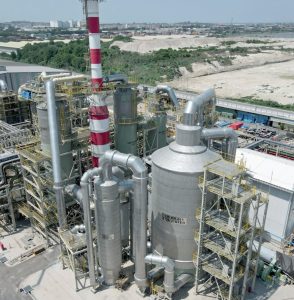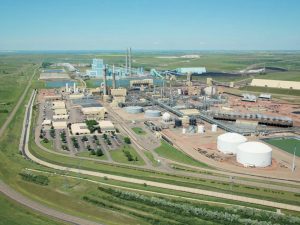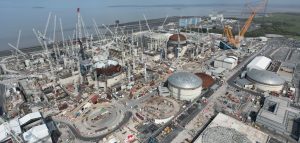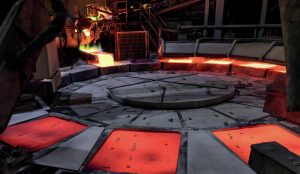
The merchant market for sulphuric acid
Short term supply constraints are dominating acid markets at present, but increasing smelter production across Asia may lead to oversupply in the longer term.

Short term supply constraints are dominating acid markets at present, but increasing smelter production across Asia may lead to oversupply in the longer term.

QatarEnergy has announced its decision to build a new, world-scale urea production complex that will more than double Qatar’s urea production. The project is aiming to construct three ammonia production lines which will supply four new world-scale urea production trains in Mesaieed Industrial City. Total capacity for the new complex is projected to be 6.4 million t/a, more than doubling Qatar’s annual urea production from about 6 million tons per annum currently to 12.4 million tons per annum. Production from the project’s first new urea train is expected before the end of this decade.

In spite of increasing environmental concerns over the use of coal as a feedstock, it continues to provide around one quarter of the world’s ammonia. But in a world that is decarbonising, is there still a future for coal-based capacity?
OCP Group has launched what it calls the Mzinda-Meskala Strategic Programme, aimed at significantly expanding fertilizer production in the country. Initially announced in December 2022, the program is set to enhance production capacity in two key regions: the Mzinda-Safi Corridor and the Meskala-Essaouira Corridor. This initiative is part of OCP’s broader strategy to meet growing global demand for fertilizers while committing to long-term sustainability goals, including achieving carbon neutrality by 2040.

Methanex Corporation has entered into a definitive agreement to acquire OCI Global’s international methanol business for $2.05 billion. The transaction includes OCI’s interest in two world-scale methanol facilities in Beaumont, Texas, one of which also produces ammonia. The transaction also includes a low-carbon methanol production and marketing business and a currently idled methanol facility in the Netherlands.

With green ammonia from renewable energy facing cost hurdles to adoption, thoughts have turned to using nuclear energy as a carbon free alternative.

OCI Global says that it has reached an agreement for the sale of 100% of its equity interests in its Clean Ammonia project currently under construction in Beaumont, Texas for $2.35 billion on a cash and debt free basis. The buyer is Australian LNG and energy company Woodside Energy Group Ltd. Woodside will pay 80% of the purchase price to OCI at closing of the transaction, with the balance payable at project completion, according to agreed terms and conditions. OCI will continue to manage the construction, commissioning and startup of the facility and will continue to direct the contractors until the project is fully staffed and operational, at which point it will hand it over to Woodside. The transaction is expected to close in H2 2024, subject to shareholder approval.
In its most recent interim report, published on August 15, renewable energy developer Ørsted said that it was abandoning the FlagshipONE renewable methanol project because the anticipated market for green methanol as a marine fuel had not materialised as quickly as expected. The strategic decision comes nearly two years after final investment decision (FID) on the project.
Veolia says that its subsidiary Veolia North America has signed an agreement for the divestment of Veolia North America Regeneration Services, which includes its sulphuric acid and hydrofluoric acid regeneration activities for refineries, to private equity firm American Industrial Partners for $620 million. These activities represented revenues of around $350 million in 2023. The financial closure of the transaction is expected soon. Veolia’s Sulphuric Acid Regeneration Business includes its sulphuric acid and potassium hydroxide regeneration, as well as sulphur gas recovery, and sulphur-based products production businesses.

China’s acid production continues to grow as new smelters come on-stream. But high domestic demand from phosphate production as export restrictions are lifted and a shortage of copper concentrate may limit the potential for acid exports.